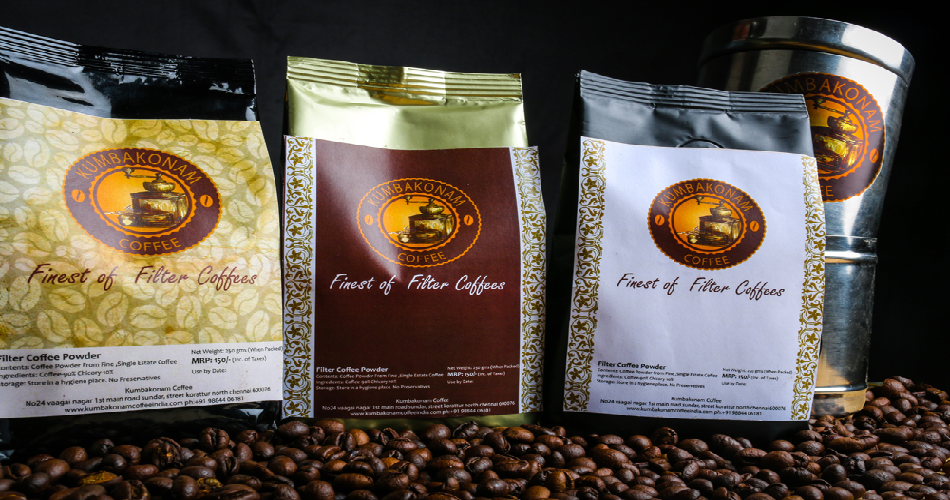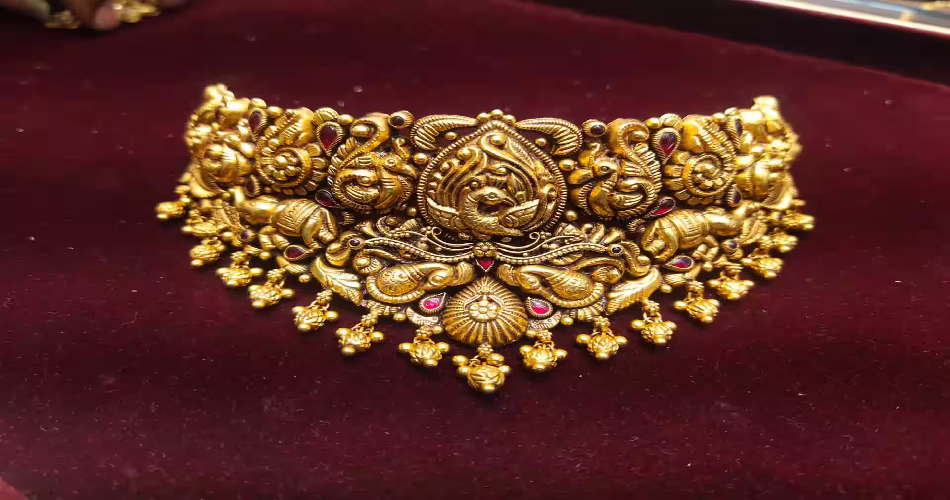
Here’s a complete, in-depth guide to the Top 10 Souvenirs to Buy in Kumbakonam, Tamil Nadu — a city known for its temples, art, and traditional craftsmanship. This will help any first-time visitor know what to buy, where to buy it, why it’s special, and practical tips for shopping.
1. Kumbakonam Degree Coffee (Filter Coffee Powder)
What it is:
Kumbakonam Degree Coffee is South India’s pride — made from premium Arabica beans blended with chicory, offering a strong aroma and rich taste.
Why buy it:
It’s world-famous for its purity and flavor. The coffee is traditionally brewed using a brass or steel filter, giving it a thick decoction.
Where to buy:
- Venkatramana Coffee Works (near Town Hall Road)
- Kumbakonam Degree Coffee Shop, Gandhi Park
- Mangal & Muthu Coffee Works, Mutt Street
Tip: Ask for “freshly roasted” beans or “filter coffee blend” (80% coffee, 20% chicory) for the best taste.
2. Brass and Bronze Utensils
What it is:
Kumbakonam is one of the oldest centers for metalcraft in South India. Skilled artisans create hand-cast brass lamps (Kuthu Vilakku), vessels, and idols.
Why buy it:
Each item is handcrafted and carries cultural symbolism. A “Kumbakonam Lamp” is considered auspicious and a beautiful home décor piece.
Where to buy:
- Swamimalai Handicrafts Village (8 km from town – UNESCO recognized for Chola bronze work)
- Tamil Nadu Handicrafts Emporium (Poompuhar)
- Shops around Kasi Viswanathar Temple
Tip: For export or travel, request “lacquer polish” or “antique finish” coating to prevent tarnish.
3. Silk Sarees (Especially from Kanchipuram and Kumbakonam Weavers)
What it is:
Kumbakonam’s nearby villages (like Darasuram and Thirubuvanam) produce exquisite silk sarees with zari (gold-thread) borders.
Why buy it:
The sarees are soft, elegant, and showcase authentic South Indian weaving patterns.
Where to buy:
- Co-optex Showroom, Near Bus Stand
- Thirubuvanam Silk Weavers Co-operative Society
- Darasuram Handloom Showroom
Tip: Ask for “pure zari” sarees if you’re buying for traditional or wedding use; “half-fine zari” if on a budget.
4. Temple Brass Lamps (Kuthu Vilakku & Vilakku Sets)
What it is:
These are traditional oil lamps used in temples and homes for pooja and decoration.
Why buy it:
They symbolize prosperity and divine light, making them perfect spiritual gifts or home décor items.
Where to buy:
- Kumbakonam Main Bazaar Road
- Mahadevan Metal Works, Near Ramaswamy Temple
Tip: Buy from shops that engrave the lamp with the name of your home deity or temple — a custom here.
5. Panchaloha (Five-Metal) Idols
What it is:
Sacred idols made of five metals – gold, silver, copper, zinc, and iron – following ancient Agama Shastra principles.
Why buy it:
These idols (of deities like Shiva, Vishnu, Lakshmi, or Murugan) are unique to this region and are believed to radiate positive energy.
Where to buy:
- Swamimalai Bronze Craft Cluster
- Authorized shops with Temple certification
Tip: Always request a certificate of authenticity; genuine Panchaloha idols are expensive but heirloom-quality.
6. Betel Leaves and Areca Nuts (Kumbakonam Vethalai)
What it is:
Kumbakonam’s betel leaves are renowned for their aroma and smooth texture, used traditionally after meals.
Why buy it:
They’re part of Tamil hospitality culture — offered to guests and used in religious functions.
Where to buy:
- Local Market near Mahamaham Tank
- Sundar Bazar Leaf Market
Tip: If carrying to another city, store the leaves in a damp cloth to keep them fresh.
7. Pith (Sholapith) Handicrafts
What it is:
Crafts made from the soft white pith of a plant stem — used to create miniature temples, idols, and models.
Why buy it:
They’re lightweight, eco-friendly, and represent traditional South Indian artistry.
Where to buy:
- Kumbakonam Craft Co-operative Society
- Handicraft Stores near Mahamaham Tank
Tip: Handle with care; pith items are delicate and best kept in dry environments.
8. Temple Prasadams & Mahamaham Tank Themed Souvenirs
What it is:
Sacred items like vibhuti (holy ash), kumkum, prasadam, and bottled Mahamaham tank water are unique religious souvenirs.
Why buy it:
They are spiritually symbolic — reminders of your visit to Kumbakonam’s temples like Adi Kumbeswarar and Sarangapani.
Where to buy:
- Temple shops near Adi Kumbeswarar Temple
- Stalls near Mahamaham Tank
Tip: Check seals if buying bottled holy water; keep religious items respectfully packed.
9. Banana Chips and Traditional Snacks
What it is:
Crunchy banana chips, murukku, adhirasam, and seedai are made fresh daily by local shops.
Why buy it:
Authentic Tamil Nadu flavors made with coconut oil and jaggery — perfect edible souvenirs.
Where to buy:
- Ayyanar Vilas Sweet Stall
- Vasantha Bhavan Snacks Corner, Opp. Bus Stand
- Sri Murugan Sweets, Town Hall Road
Tip: Ask for “freshly packed” snacks; avoid those exposed to open air due to humidity.

10. Traditional Jewelry and Temple Ornaments
What it is:
Temple jewelry designs inspired by Chola art — including earrings, necklaces, and anklets.
Why buy it:
Perfect blend of spirituality and craftsmanship; often worn in Bharatanatyam dance or as heritage fashion.
Where to buy:
- Kumbakonam Jewellery Street, near Big Bazaar
- Thangamayil Jewellery, Town Hall Road
Tip: Look for hallmark certification for gold and silver; for imitation, check for copper-based finishes for longevity.
Bonus: Where to Shop in Kumbakonam
- Town Hall Road – For metalware, brass lamps, and jewelry.
- Big Bazaar Street – For textiles and sarees.
- Mahamaham Tank Market – For handicrafts and local specialties.
- Swamimalai Village (8 km away) – For Panchaloha and bronze sculptures.
Travel Tips for Shoppers
- Best time to shop: Morning hours (9 AM–12 PM) to avoid heat and crowds.
- Payment: Most shops accept cash and UPI; some co-operatives accept cards.
- Bargaining: Mild bargaining is acceptable in local markets, but not in co-op or government stores.
- Packing: Wrap brass or bronze items in soft cloth; keep fragile crafts separate.